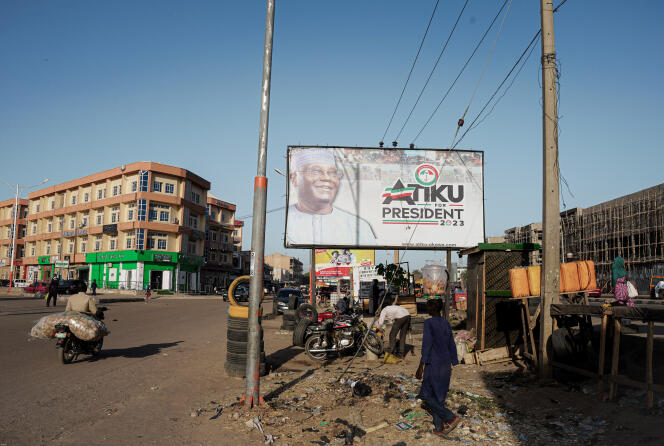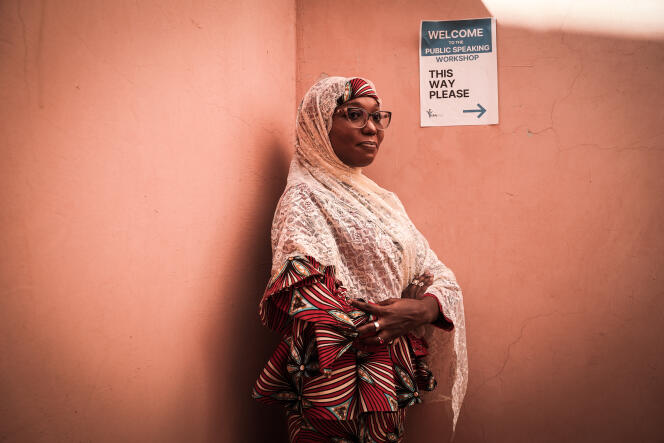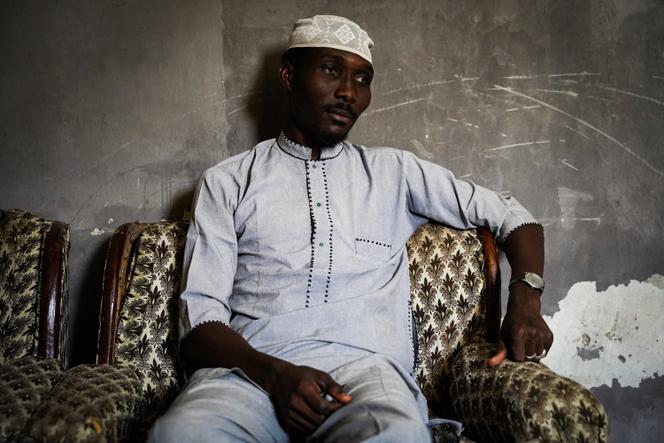
The battle is on to win over voters in Kano, a large Muslim city in northern Nigeria, where the predicted outcome is proving more complex than usual. In the previous five presidential polls, the country's second-largest city, with a population of some 15 million, consistently supported Muhammadu Buhari, a Hausa from the North, who is currently completing his second term. This is the first time since 2003 that the former general and coupist will not be running for president, leaving the candidates eager to tap into this important pool of votes. The election is scheduled for February 25.
With more than 5.9 million registered voters, according to the Nigerian Independent National Electoral Commission (INEC), Kano is the second most populous city in Nigeria, second only to the megalopolis of Lagos with 7 million registered voters. In 2015, Buhari won 1.9 million of its votes, making up about 12.5% of the total votes for him. "Kano can really change the dynamics of a presidential election," pointed out Kabiru Said Sufi, a professor at the Kano college of education. "The electoral weight of this state, or Katsina State, is equivalent to that of three states in southeast Nigeria!"
Well aware of the strategic importance of the "swing state," Bola Ahmed Tinubu, the candidate from the All Progressives Congress (APC, majority), has invested a lot of time and money in the region, which has been ruled by his party since 2015. The face of the 70-year-old former governor of Lagos and that of his running mate, Kashim Shettima, a senator and the former governor of Borno State (northeast), are prominently displayed on billboards around the city, where they enjoy a much higher profile than their competitors.
Baffa Babba Danagundi recognizes the Nigerian government mixed results when it comes to security matters
"He has been working with the people of the north for a long time and has been instrumental in getting many local politicians elected and of course in bringing Muhammadu Buhari to power," said Baffa Babba Danagundi, who runs Tinubu's campaign support group in the region. A former local elected official, Danagundi is currently the head of the powerful Kano state roads and traffic agency. In no way criticizing the outgoing president, Danagundi does recognize mixed results when it comes to security matters. "We cannot deny that the situation still isn't resolved," he said. That is an understatement, given how much insecurity has spread throughout Nigeria since 2015.
A divided opposition
Kano has indeed become a safe city where the Boko Haram bombings are a distant memory. But the increase in kidnapping numbers, the rise of armed groups in the northwest, and the emergence of the Islamic State's West Africa Province (ISWAP) in the northeast are "extremely worrying" developments, according to Hafsat Adhama – a campaigner for the New Nigeria People's Party (NNPP), led by former governor Rabiu Kwankwaso.
"The roads have become so dangerous that it's difficult to visit family. And insecurity also hinders commerce," explained the young woman, who teaches English and public speaking at EsaHub, an NGO she founded in Kano. "In 2015, people voted for change. We expected changes in education, in the economy... Instead, the country went into recession and inflation is skyrocketing," she said, hoping that the population will want to try "something different" from the APC or the People's Democratic Party (PDP), the official opposition led by Atiku Abubakar – who is running for the sixth time in the presidential election.

Adhama is campaigning for Kwankwaso, who left the PDP and is running under his own party, the NNPP. But despite being one of the most popular politicians in Kano state, Kwankwaso has little chance of winning the election. For a time, an alliance with Peter Obi, the Labour Party (LP) candidate – who also broke away from the PDP and is popular in the southern cities – was a possibility, but the two outsiders failed to agree on joining forces at the national level.
While divisions among the opposition play into the hands of the presidential party, the Buhari administration's poor performance has plunged the country into "political apathy," according to professor Sufi. "In 2015, there was a genuine excitement around his candidacy, but the magic has completely disappeared," the analyst observed. If even the "golden boy" from the north can't save the country, who can?
'Nigerians are disappointed'
In 2015, Mustafa Suleiman, 27, was among those in Kano who voted for Buhari. The disappointment was immediate: The newly elected president took six months to form a government, before taking multiple trips to London for medical reasons. "He never should have been president, he was already too old for that," said the economics graduate. Like many young people, Suleiman is unemployed. "All Nigerians, absolutely all of them, are disappointed," he said. "Our currency has collapsed, the national debt is now 77 trillion nairas [about €157 billion]. We're doing everything we can to get out of it, but these days nobody wants to vote anymore."

The list of priorities is long, from education to healthcare, and Suleiman dreams of getting involved in politics at the local level to try to bring about change. In the meantime, he notes that the widespread disappointment encourages wealthier candidates to buy votes. "Some people would rather just sell their right to vote in exchange for 1,000 nairas [€2]. Sometimes it's because of a lack of education and illiteracy. I see it every day with my own eyes," he said. This well-known problem is a recurring theme in every Nigerian election. "Women are the first to be targeted by those who collect electoral cards for money. An official was recently arrested for this in Kano," said Ibrahim Walya, the secretary general of the Kano Peace Committee (KPC), a civil society collective that campaigns for transparent and peaceful elections.
Among the many problems, Walya highlighted "the use of state resources for the benefit of the outgoing administration," as well as "the use of youth groups to prevent certain parties from campaigning." Political violence remains a "difficult problem to contain" for the electoral commission, "which does not have the necessary logistics." Furthermore, Walya explained, "INEC has to rely on the security agencies, which are controlled by the party in power locally. So inevitably, it's very hard to expect an investigation if political figures are involved in the violence." In late November, several people were injured in clashes between NNPC and APC supporters in the working-class Gwale district of southern Kano.